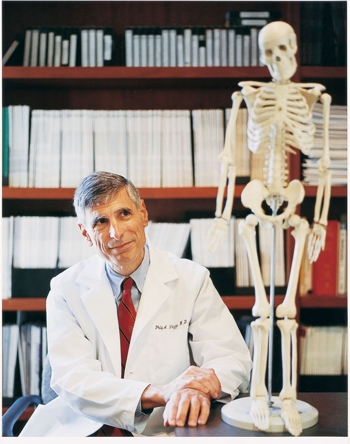 |
|
Dear Readers,
At the beginning of 2007, a group of American business titans urged President Bush to face the growing and urgent issue of global warming. This was a visionary stance, especially as business leaders have been traditionally cast as more concerned about economic competitiveness than environmental protection. But it is a position that is supported by an abundance of scientific data.
Most of the world appears to recognize the realities of global warming. Certainly former Vice President Al Gore’s film An Inconvenient Truth catapulted the unfolding catastrophe to a vast public audience, underscoring the decades of research supporting the hypothesis that the planet’s climate is on a course of change unless action is taken now.
As health-care providers, we have an enormous stake in environmental issues. From my point of view, virtually every disease is the result of interactions between genetics and the environment. As a result of climate change, the risk of numerous infectious and non-infectious diseases will rise. Those with few financial resources will be hit hardest, succumbing to heat stroke during heat waves and to infectious diseases that thrive in warm weather. In fact, the World Health Organization estimates that in 2000 the effects of climate changes since the mid-1970s may have caused more than 150,000 deaths, most in developing nations.
No one will be immune. Beyond the economic consequences, the vulnerability to new diseases — or ones that societies have not been exposed to for many generations — could also heighten. For example, with longer, warmer summers in the United States, one can expect infectious agents spread by animals, such as malaria and dengue fever, to begin moving north from Mexico and increasingly sicken U.S. residents.
The significance of environmental change to global health is one of the reasons I am pleased that the environment is a central priority for the Stanford Challenge — the university-wide program seeking solutions to the century’s most pressing global problems. The School of Medicine will be part of this effort, which will foster new alliances between medicine, engineering, earth sciences, law, business and more to address a number of challenges — including the environment.
As members of the scientific community, we must take strong stands on decisions that affect the environment — just as we have done on stem cell research and so many other biomedical issues. The new Congress offers hope of getting environmental issues on the front burner. Let’s do our part to make sure government leaders hear the message that the environment matters for health.
With best regards,
Philip A. Pizzo, MD
Professor of Pediatrics and of Microbiology and Immunology
Carl and Elizabeth Naumann Professor
Dean, Stanford University School of Medicine

